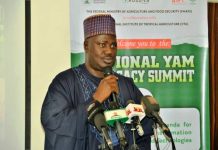Today, as we join the continent to mark the 2025 Day of the African Child, I begin by acknowledging the historical significance of this day. It commemorates the brave children of Soweto, South Africa, who, on June 16, 1976, courageously marched for their right to quality education and against apartheid injustices. Their sacrifice continues to echo across generations, calling us to uphold and advance the rights of every African child. I also acknowledge the pivotal role of the African Committee of Experts on the Rights and Welfare of the Child (ACERWC) for championing this observance and for keeping the aspirations of African children at the heart of our continental development.
This year’s theme, “Planning and Budgeting for Children’s Rights: Progress Since 2010” challenges us to move beyond ceremonial observances and to take bold, evidence-informed actions. It asks critical questions: How far have we come? How deliberately are we prioritising the rights and well being of children in national and subnational planning and budgeting cycles? What structural gaps persist? Planning and budgeting must never be seen as technical routines, they are reflections of our values, of the futures we choose to build. Every Naira not invested in child development leaves a void in our national destiny. Every oversight in planning has ripple effects across generations. This is a clarion call to Ministries, Departments, and Agencies; to State and Local Governments; to the private sector, civil society, and international partners: let us realign our priorities, re evaluate our spending, and act with urgency. Because to invest in children is to invest in national security, productivity, and prosperity.
Across Nigeria; from the bustling classrooms of Lagos to the rural hinterlands of Nasarawa, from the innovation hubs of Anambra to the riverine communities of Bayelsa, our children are united in a silent but urgent plea to be seen, heard, planned for, and better protected. Yet too many remain on the margins. In IDP camps in Maiduguri, Makurdi, and Yola, thousands of children face daily realities of displacement, trauma, and disrupted education. In flood-prone areas like Mokwa, over 1.4 million children were displaced in 2022 due to climate-induced emergencies. In hard to reach communities, over 10.2 million children remain out of school. Together with these vulnerabilities, we face a national child marriage crisis: approximately 44% of girls in Nigeria are married before 18, a practice that perpetuates cycles of poverty and limits future opportunities. These are not isolated vulnerabilities; they are systemic signals that our planning and budgeting processes must be more inclusive, equitable, and responsive. It is no longer enough to draft policies in boardrooms, we must ground our priorities in the lived realities of every Nigerian child, regardless of geography, gender, ability, or circumstance. Children are not statistical afterthoughts, they are strategic priorities, and investing in them is the only sustainable path to national transformation.
I am proud to affirm that, as of today, the Child Rights Act is now law in all 36 States and the FCT. This is a remarkable achievement for Nigeria. However, domestication must go beyond legislation, it must be matched with proper gazetting, sufficient funding, and an unwavering commitment to full implementation. The Federal Ministry of Women Affairs is working assiduously to review existing child-related laws and policies to align them with the Renewed Hope Agenda and global best practices. We are equally prioritising a more holistic programming approach that caters to the entire spectrum of childhood; including the often-overlooked boy child to ensure that our protection and development architecture is watertight and future-proof.
Under the Renewed Hope Agenda of President Bola Ahmed Tinubu, GCFR, the budget of the Federal Ministry of Women Affairs has been enhanced more than ever before. This is a testament to this administration’s deep understanding that children’s rights and welfare are non negotiable pillars of national development. A well planned and adequately resourced childhood lays the foundation for resilient families, productive communities, and a secure nation.
I must commend the steadfast contributions of our stakeholders—state governments, development partners, the private sector, traditional institutions, and civil society organisations. Your previous investments and policy support have laid the groundwork for the progress we see today. Now, more than ever, we must move with renewed resolve. Let us deepen our commitment, upscale our investment, and enhance accountability mechanisms in ways that directly impact children’s lives.
A classic illustration of our commitment to child participation in governance is the National Children’s Parliament. This platform has empowered children across the country to engage with policymakers and make their voices heard on issues that directly affect them. As a Ministry, we are committed to strengthening and expanding such avenues for child engagement and empowerment across all levels.
On this Day of the African Child, let our commitment be both spoken and lived. Let us plan with precision, budget with integrity, and act with urgency. Let us honour not just the memory of Soweto, but the promise of every Nigerian child.
Because when we protect children, we preserve hope. When we invest in children, we secure the future. And when we listen to children, we shape a Nigeria that is inclusive, just, and truly great.
Signed
Imaan Sulaiman Ibrahim, fsi
Honourable Minister for Women Affairs





